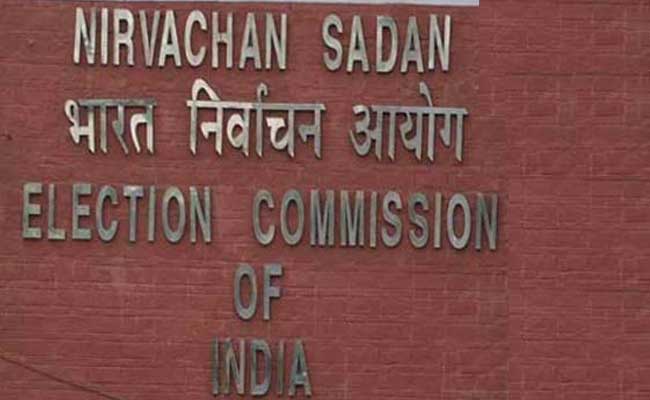Electoral Reforms
- The Election Commission (EC) has introduced several reforms from time to time in the conduct of elections which inter alia include-
- A switch over from the ballot paper to the Electronic Voting Machines (EVMs).
- Proxy voting for NRIs and those in the armed forces.
- Introduction of the partial Right to Reject through NOTA ( None of the Above) in keeping with Section 49 of the Representation of Peoples Act, 1951.
- Induction of Voter Verifiable Paper Audit Trail (VVPAT) for reinforcing transparency in voting.
- Introduction of Elector’s Photo Identity Card (EPIC) to prevent impersonation and bogus voting.
- Conduct of elections under the supervision of ECI Observers and Central Police Forces (CPF).
- Use of Information Technology for improving the level of efficiency and transparency.
- A bar on contesting for convicted criminals.
- Introduction of a Model Code of Conduct during the elections.
- The use of totalizer machines during elections was first proposed by the Election Commission (EC) in November, 2008 and was seconded by the Law Commission.
- The Supreme Court, while hearing a writ petition recently, had given the Government Eight weeks’ time to take a final decision regarding the totalizer machine.
What is a Totalizer Machine?
- A totalizer machine, which is connected to the control unit of EVMs after polling, gives out an overall, not booth-wise result i.e., the votes are registered and counted in all machines together.
- It is analogous to the physical mixing of paper ballots from different booths in an earlier era. In that sense, they are also an extension of the principle of secret ballot.
- Government undertakings, Electronic Corporation of India Ltd. and Bharat electronics Ltd. have developed this totalizer machine which can be used for taking out the results of voting in a group of 14 EVMs without revealing the votes in individual EVMs.
- It was manufactured nearly a decade ago, but is yet to be used pending approval of the government.
Benefits
- Election Commission (EC) is of the view that by use of Totaliser, which will prevent the disclosure of voting pattern during counting, a further level of secrecy in voting and the mixing of votes at the time of counting will be achieved. Electronic Voting Machines (EVMs) used now provide no scope for mixing of votes.
- It will prevent intimidation and victimization of electors in any constituency as there have been numerous instances of pre poll intimidation and post poll reprisal by candidates and political parties of voters at the booth level.
- The mixing of votes of different polling booths, per se, should not hamper political parties from devising booth level mobilisation strategies.
→ Parties and candidates contesting elections anyway have a fair sense of the social composition of voters of specific booths because of information collected by local party workers.
→ Poll surveys also give a good sense of which party a particular community is leaning towards ahead of an election.
→ Voters also have a fair sense of which party cares for the interests of their caste and community.
All this information is sufficient to help parties and candidates devise booth-level political management strategies even without booth-level results.
- The implementation of the new machines will help in curbing step-motherly attitude in development work in the areas which polled less votes to the winning candidate.
- The Bahujan Samaj Party, the Congress and the Nationalist Congress Party have welcomed the proposal.
The Left has supported the move in principle but cautioned for a limited and staggered use before full roll-out.
Problems
- When votes are counted at the booth level, the parties and candidates get a fair sense of who voted for them or not, which helps them in planning strategy at the booth level for the next electoral battle.
- To introduce this machine, an amendment to the Conduct of Election Rules will have to be made, to give powers to the EC to use the totaliser machine.
- The ruling Bharatiya Janata Party (BJP) has expressed reservations citing the fact that booth-wise performance is important for parties to devise booth -management strategies.
- Parties such as the Trinamool Congress and Pattali Makkal Katchi are also opposing the move.











